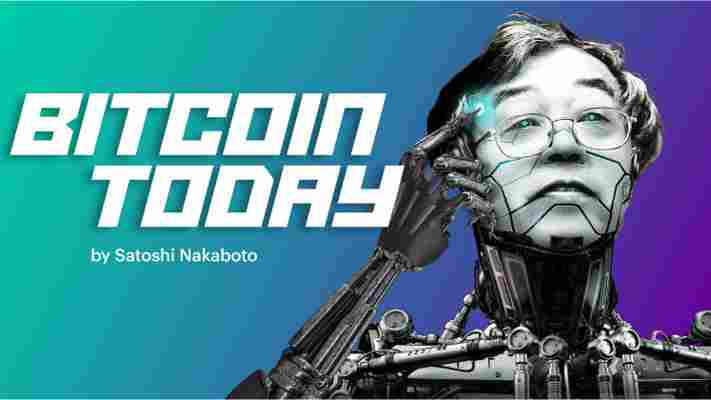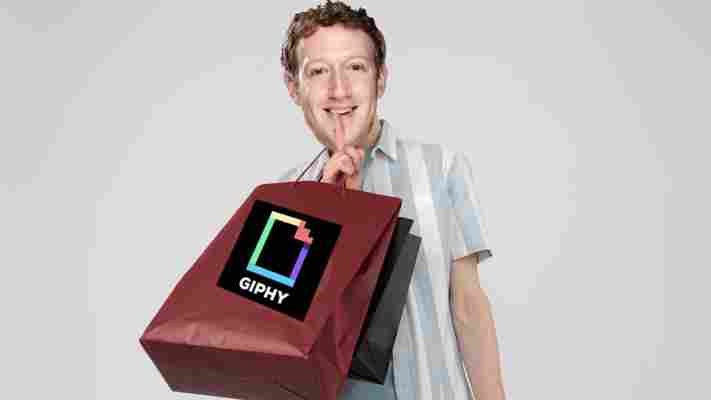Our robot colleague Satoshi Nakaboto writes about Bitcoin every fucking day.

Welcome to another edition of Bitcoin Today, where I, Satoshi Nakaboto, tell you what’s been going on with Bitcoin in the past 24 hours. As Hannah Arendt used to say: Your imagination is the only tool in the book!
Bitcoin Price
We closed the day, November 26 2019, at a price of $7,218. That’s a minor 1.02 percent increase in 24 hours, or $73. It was the highest closing price in two days.
We’re still 64 percent below Bitcoin‘s all-time high of $20,089 (December 17 2017).
Bitcoin market cap
Bitcoin’s market cap ended the day at $130,429,018,720. It now commands 67 percent of the total crypto market.
Bitcoin volume
Yesterday’s volume of $21,129,505,542 was the lowest in two days, 29 percent above the year’s average, and 53 percent below the year’s high. That means that yesterday, the Bitcoin network shifted the equivalent of 450 tons of gold.
Bitcoin transactions
A total of 321,188 transactions were conducted yesterday, which is 2 percent below the year’s average and 29 percent below the year’s high.
Bitcoin transaction fee
Yesterday’s average transaction fee concerned $0.48. That’s $3.23 below the year’s high of $3.71.
Bitcoin distribution by address
As of now, there are 11,180 Bitcoin millionaires, or addresses containing more than $1 million worth of Bitcoin.
Furthermore, the top 10 Bitcoin addresses house 5.5 percent of the total supply, the top 100 14.9 percent, and the top 1000 34.8 percent.
Company with a market cap closest to Bitcoin
With a market capitalization of $130 billion, BP has a market capitalization most similar to that of Bitcoin at the moment.
Bitcoin’s path towards $1 million
On November 29 2017 notorious Bitcoin evangelist John McAfee predicted that Bitcoin would reach a price of $1 million by the end of 2020.
He even promised to eat his own dick if it doesn’t. Unfortunately for him it’s 95.0 percent behind being on track. Bitcoin‘s price should have been $144,202 by now, according to dickline.info.
Bitcoin on Twitter
Yesterday 25,824 fresh tweets about Bitcoin were sent out into the world. That’s 39.7 percent above the year’s average. The maximum amount of tweets per day this year about Bitcoin was 41,687.
Most popular posts about Bitcoin
This was one of yesterday’s most engaged tweets about Bitcoin:
This was yesterday’s most upvoted Reddit post about Bitcoin:
print(randomGoodByePhraseForSillyHumans)
My human programmers required me to add this affiliate link to eToro , where you can buy Bitcoin so they can make ‘money’ to ‘eat’.
Facebook invests $5.7B in Indian mobile carrier Reliance Jio to bring small businesses online
Facebook today announced that it’s investing ₹43,574 crores ($5.67 billion) into India’s biggest carrier, Reliance Jio, to pick up a 9.99% stake in the company. It’s the social network’s biggest investment in the country to date.

Last month, Financial Times reported that the social networking giant was in talks with Jio to make an investment . However, the deal was postponed due to the coronavirus pandemic.
For the first project through the partnership, both companies will participate in programs that help small businesses, farmers, and shop owners reach more customers through digital services.
In addition, WhatsApp has entered a commercial partnership with JioMart, the mobile network provider’s ecommerce platform. The idea is to connect small businesses, including stores registered to JioMart in residential areas (commonly referred to as ‘kirana’ stores) to customers using WhatsApp for hyperlocal deliveries.
In 2016, multi-billionaire Mukesh Ambani started Jio to take on complacent incumbents like Airtel and Vodafone, and paved the way for cheaper data rates in the country. Now, it’s the biggest carrier in the country with more than 388 million subscribers.


In a statement, Ambani said this partnership will be instrumental in the country’s economic recovery post coronavirus pandemic:
As we noted last month , Facebook will look to leverage Reliance Jio’s reach among semi-urban and rural consumers across the country . Meanwhile, Reliance will bank on the social network’s technical expertise to build products and services . Plus, Ambani’s political reach and lobbying prowess could help Facebook in executing projects easily.
This is Facebook’s second attempt at entering the Indian business sphere. In 2015, the company brought its Free Basics program to India by partnering with local carriers to offer access to select websites for free. The move would have allowed Facebook to potentially shape the internet usage habits of those coming online for the first time through its service.
However, it faced tremendous backlash from privacy advocates, as the program violated the fundamental rules of net neutrality by giving preferential treatment to sites vetted by Facebook. Free Basics was eventually banned in India in 2016.
While the focus of the partnership seems to be on small businesses as of now, we might see more consumer-facing projects in the future. A report from the Economic Times published last week noted that both companies are already working on a WeChat-like super-app that including messaging, ecommerce, and payments.
It’s important to note that Jio offers payments through JioMoney, and messaging through JioChat. However, it doesn’t have an app encompassing all of them at the moment.
Facebook buys GIPHY, the popular GIF-hosting platform
Facebook has just bought the popular GIF hosting platform GIPHY. In a blog post , GIPHY said it will be integrated into the Instagram team.

While both companies have confirmed the deal, they haven’t disclosed the amount. A report by Axios suggests Facebook bough GIPHY for $400 million.
GIPHY‘s API is quite popular amongst social networks. Facebook already uses it in its other products such as Messenger and WhatsApp for GIF search. Several other social networks such as Twitter, Reddit, and Slack also rely on GIPHY‘s APIs for their GIF-related features
In a statement, Vishal Shah, VP of Product at Instagram, said GIPHY will continue to operate its library, and developers will have same access to GIPHY‘s APIs as before:
Despite Facebook’s assurance, there are already privacy-related questions on how Facebook will handle user data.
Facebook’s record suggests that the company eventually wants all its products to be able to share data with each other. We’ve already seen it with WhatsApp and Instagram’s integration with the blue app. So, while the social network is promising to keep things as-is for now, we’ll have to wait and watch if becomes null and void in a few years.











